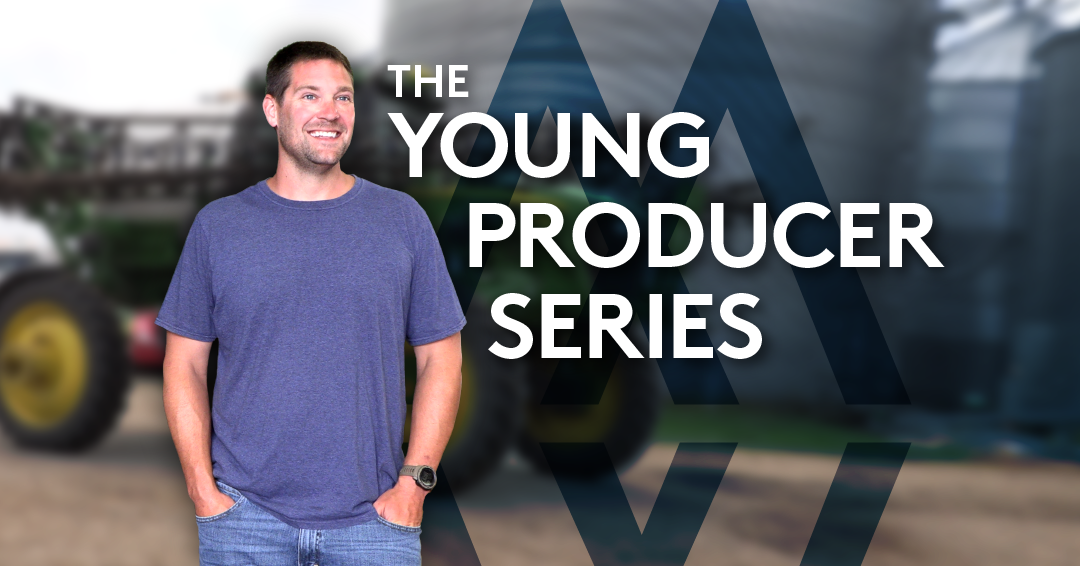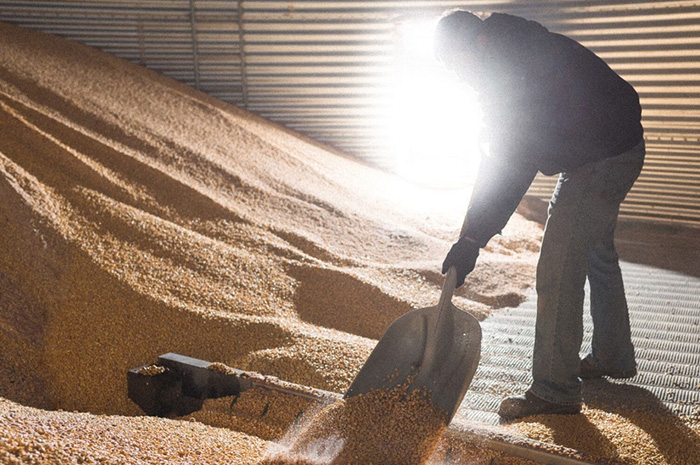Minnwest Bank recently sat down with Zach Johnson to learn more about being a young producer in the farming industry. In the first episode of the series, Zach talks about the importance of farm financial management.
Life as a farmer means the call to head outside and work hard is difficult to resist. Farmers feel productive when they’re working in the fields, the shop, the yard, getting their hands dirty. While hard physical work is the time-honored way to make money, it’s equally important to put some of that energy into developing your business savvy. That means setting aside time to develop your business skills.
“Farming’s a business like any other business,” Zach Johnson tells Minnwest Bank, “It’s good to make sure that even though we’re working hard, we’re still working smart and making good decisions, and spending the time in the office.”
How do you develop a well-honed business sense to help you build a competitive operation? It takes time, says Johnson, who is best known for his YouTube channel, Millennial Farmer, which has collected more than half a million subscribers and millions of viewers. He shared the following to help you get started.
Benchmark your operation
One of the first things a young producer should practice is benchmarking. Even though Johnson runs a highly successful operation with his father in west-central Minnesota, they belong to a local farm business management group, he says.
By joining a farm business management group, you get access to financial data of your peers, so you can compare the performance of your operation, from yields to marketing prices. As University of Minnesota Extension explains it, benchmarking lets you see where your strengths and weaknesses are. Bottom line, benchmarking provides an effective starting point for goal-setting.
Minnesota producers can learn more about benchmarking by visiting the University of Minnesota Extension website. To access even more opportunities to learn farm business management, U of M Extension is now offering plenty of virtual events.
For more ideas and resources, read 3 ways to build financial efficiency into your farm.
Make cash flow management a priority
Cash flow is a focus of Johnson’s. Without cash flow, you can’t service debts, purchase inputs to keep your operation running, and earn a living. As farmers struggle to stay solvent with rock-bottom commodity prices, it’s even more critical to make cash flow a central focus, so you can identify problems early and take them head-on.
“We’re using different software to put together different cash flows and financial analysis, making sure our balance sheets are up to date,” Johnson says.
This also helps them keep track of the operation’s costs, so they can make sure they’re reaching their goals, and making the appropriate plans for the future, he went on to say.
Some important cash flow strategies to focus on include building reserves, reducing overhead, diversifying your income with new enterprises, and smart credit management.
Learn more by reading How to Achieve Positive Cash Flow on the Farm.
Take advantage of post-harvest downtime
It can be difficult to make time for office work, Johnson says, and it's pretty much impossible during planting and harvest. But the key time of year for his operation is right after the harvest. This a time to order inputs and work the balance sheets and financial analysis, Johnson says.
“We’re making sure that the banks are happy with where we’re at and have a good understanding of where our operation went over the last year,” he says.
To add to the end-of-year checklist, this is a good time to detangle business accounts from personal accounts, as well as complete an inventory of your operation’s assets, calculate depreciation, and complete an income statement.
For further reading, check out 5 items for your year-end farm record checklist.
At Minnwest Bank, our ag lenders are members of your community, and we're committed to helping your farm thrive. Schedule an appointment today. Check out Minnwest Bank's website for additional episodes of Young Producer Series with Zach Johnson, Millennial Farmer.


